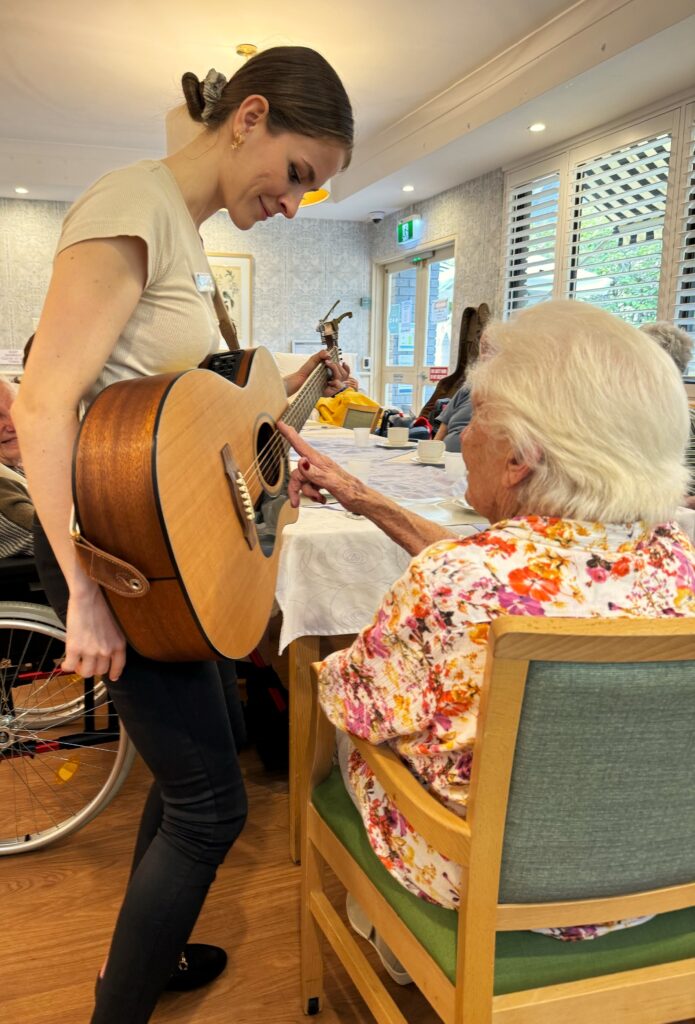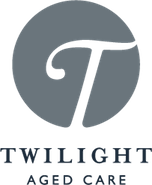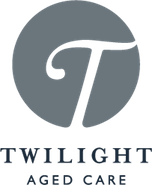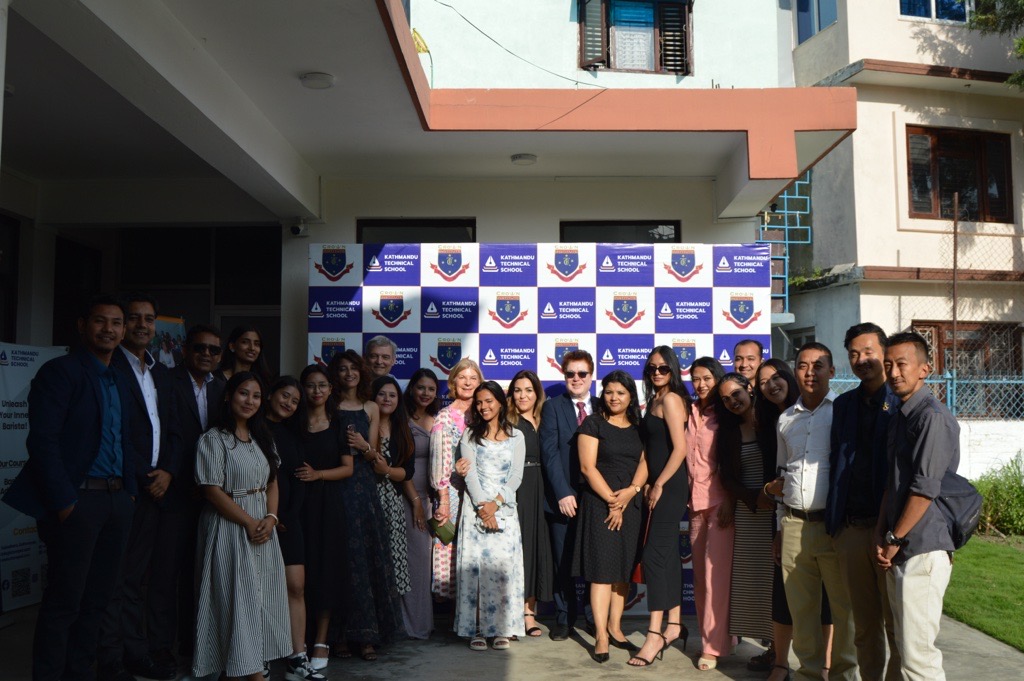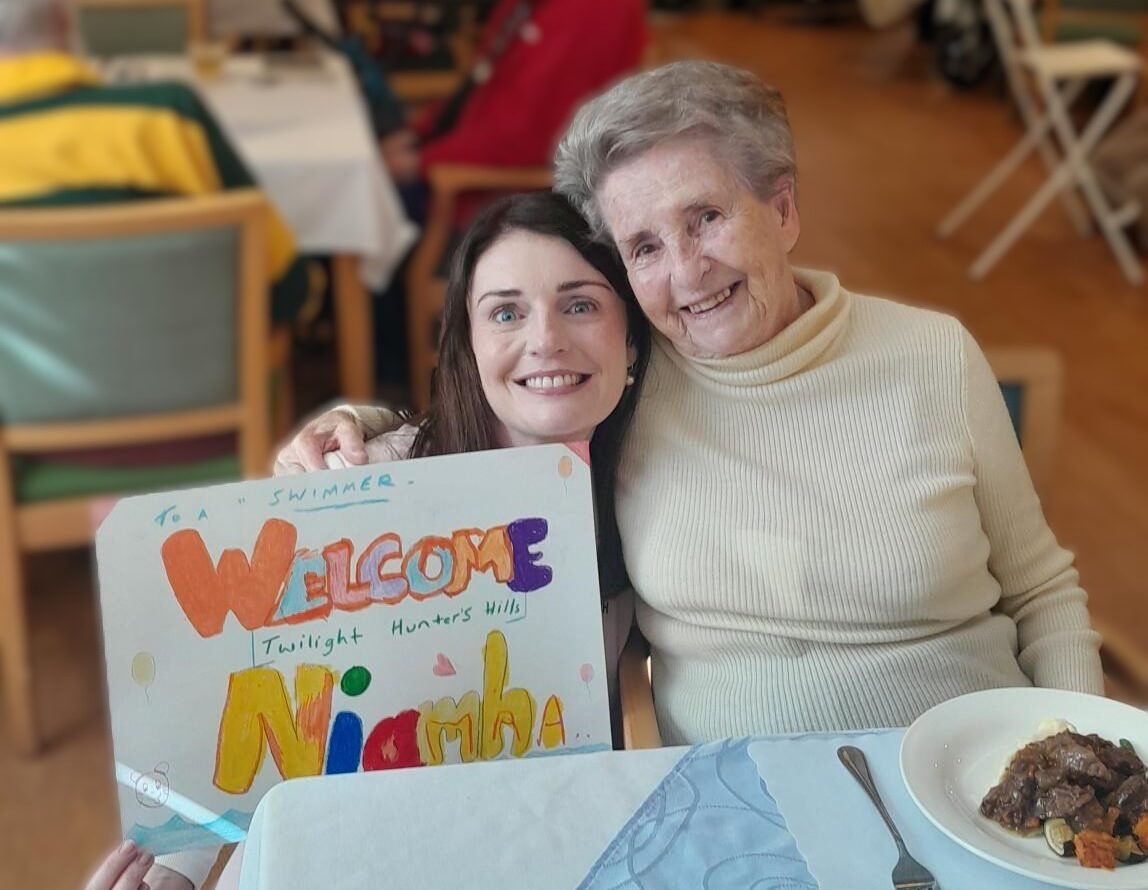Twilight's Music Therapy Programme
As part of our person-centred care delivery, Twilight’s official Music Therapy programme commenced in December 2023.
MusicTherapy is offered as part of our unique ‘Twilight Family Model of Care’ at Twilight. The Family Model of Care supports each resident in continuing to feel like they are living at home, maximising their independence, and respecting individuality, diversity, dignity, choice, and privacy.
Tamia Hawkins completed her student placement with us and fit in so well, she decided to stay! Tamia works across all of our homes, complimenting our existing Art Therapy & Lifestyle programs. Tamia also has ideas about intergenerational activities and working with drama groups, as well as exploring exercise & dance through music. She works one-on-one with residents as well as in groups.
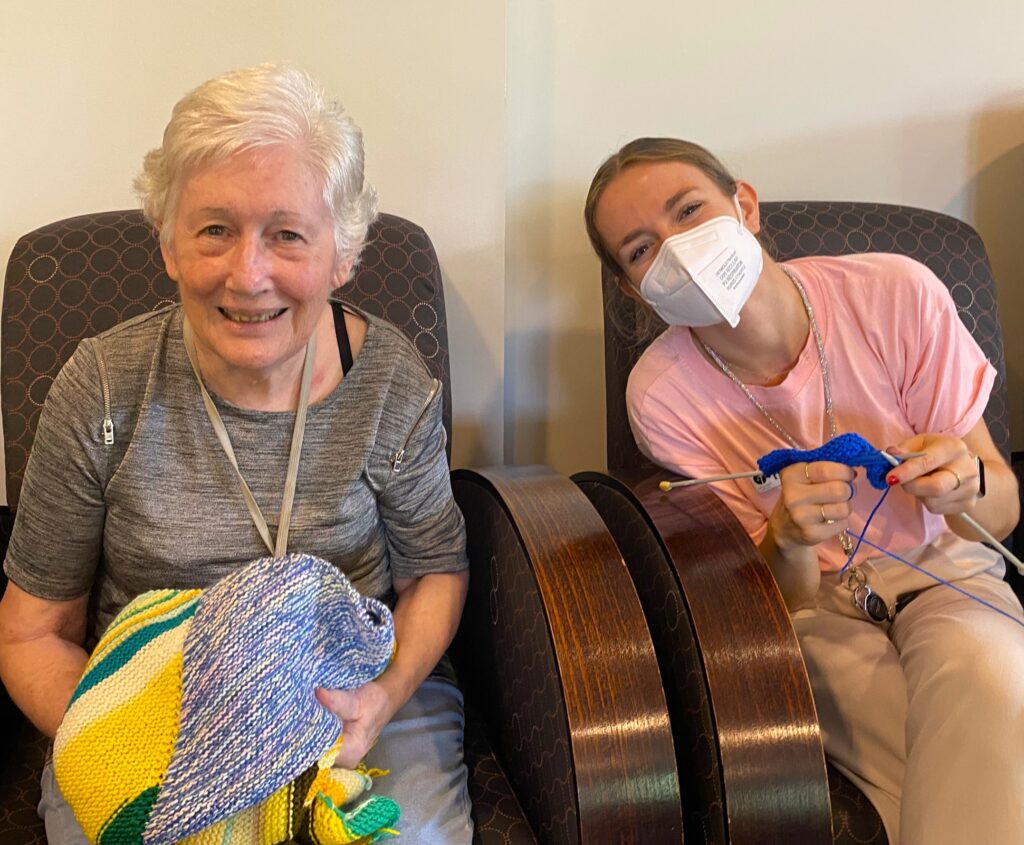
Here is some background on Music Therapy in Australia.
Music therapy, as a profession, originated in the 1950s to help relieve the physical and emotional trauma experienced by war veterans. The demand for trained professionals steadily grew and, as a result, the Australian Music Therapy Association (AMTA) was established in 1975.
AMTA defines music therapy as “a research-based practice and profession in which music is used to actively support people as they strive to improve their health, functioning and wellbeing”.
Music therapy is beneficial for people with a wide range of health concerns, including people living with dementia and brain injuries.
It is a diverse practice encompassing a variety of techniques but it is based on two fundamental methods. The receptive method involves listening, while the active method focuses on playing musical instruments.
Music therapists work with people of any age, ability, culture, and background. They will set specific objectives and implement a tailored plan to help individuals achieve their goals.
Some of the outcomes of Music Therapy include:
– Reductions in stress and anxiety
– Increases in mood and motivation
– Reduced levels of depression
– Maintaining cognitive functions and motor skills
– Ability to explore self-expression and personal identity
– Increases in confidence and self-esteem
– Improvements in communication and verbal skills
– Promotes socialising and social skills in group settings.
We are thrilled to have Tamia join the Twilight family and cannot wait to see the positive benefits the Music Therapy Programme brings to our residents’ lives!
